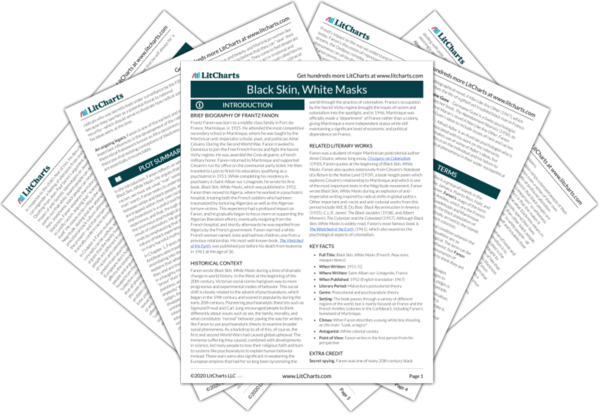Aimé Césaire is a Martinician poet, critic, and politician. He is also the founder of
Négritude, an artistic-political movement influenced by surrealism that celebrates the black diaspora. Césaire’s most well-known works are
Notebook of a Return to the Native Land (first published in 1939) and
Discourse on Colonialism (1950), both of which
Fanon quotes extensively in
Black Skin, White Masks. Like Fanon, Césaire is a harsh critic of the colonial violence that he argues cannot be separated from European culture, but at the same time, both he and Fanon emphasize the right of colonized people to “claim” the culture of the colonizers as their own.
